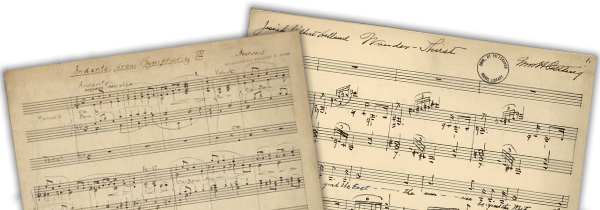
Charles N. (Newell) Boyd was American music educator, organist, and music theorist.
Charles N. (Newell) Boyd (1875–1937) was a music educator, organist, and music theorist. He was born in Pleasant Unity, Pennsylvania, the son of Rev. A. Fulton Boyd and Ann Paul Boyd. After graduating from the Poland Union Seminary in Poland, Ohio, he attended the University of Pittsburgh, receiving a degree in 1894. Boyd taught music privately until 1903 when he became the instructor for church music at the Western Theological Seminary, now the Pittsburgh Theological Seminary. In 1915, along with several other Pittsburgh musicians, including Frank Milton Hunter, William H. Oetting, and Dallmeyer Russell, he founded the Pittsburgh Musical Institute, serving as its director and also as an instructor of organ and music theory. In 1918 and 1919, the Music Teachers National Association (MTNA) elected him president. In 1919, Boyd founded the Pittsburgh Choral Society, which concentrated on unaccompanied vocal music. He directed its concerts featuring leading opera stars, such as contralto Louise Homer at the Carnegie Music Hall in Oakland. In 1924 he was one of the founders of the National Association of Schools of Music (NASM), now the principal accreditor of higher education music programs in the United States and served as its first treasurer.
A voracious reader of music journals, newspapers, and magazines, he was also a contributor to the scholarly literature in music, most notably as an author of entries in the American supplement to Grove’s Dictionary of Music and Musicians.1 He also wrote or co-authored seven textbooks on music theory and other topics, including The History and Use of Hymns and Hymn-tunes with David R. Breed,2 Recent Advances in Instruction in Music with Will Earhart,3 Organ Accompaniment and Registration,4 Famous Melodies for Bassoon: With Piano Accompaniment,5 The Organist and the Choirmaster,6 Elements of Musical Theory with Will Earhart,7 and Chorales of Johann Sebastian Bach with Albert Riemenschneider.8
Throughout his life he performed as a concert pianist and organist. An expert on hymnology, he served as organist and music director of the North Avenue Methodist Episcopal Church. As a music teacher he instructed students in organ, piano, and music composition. His most famous pupil was the renowned jazz composer and arranger Billy Strayhorn.
On April 24, 1937, Boyd collapsed and slumped at his organ at the Pittsburgh Musical Institute as he was playing an informal organ concert of religious music for Rev. N. C. Milliron. He died a few moments later at age 61. After his death, a group of Pittsburgh musicians formed the Charles N. Boyd Memorial Musicological Library Association and held a benefit memorial concert in Boyd’s honor on October 6, 1941, at the North Side Carnegie Music Hall to raise funds for the Association. Violinist Roy Shoemaker and pianist Dallmeyer Russell, along with other faculty members and students of the Pittsburgh Musical Institute performed. Proceeds from the concert were used to purchase Boyd’s private library and scrapbooks, which were then donated to the Carnegie Library of Pittsburgh’s Music Division.
In many respects, Boyd was a “Renaissance Man” and a vital personality in the development and growth of music in Pittsburgh, which he chronicled at length. Newswriters labeled him “an impressive and important musical presence in Pittsburgh” at the turn of the twentieth century.